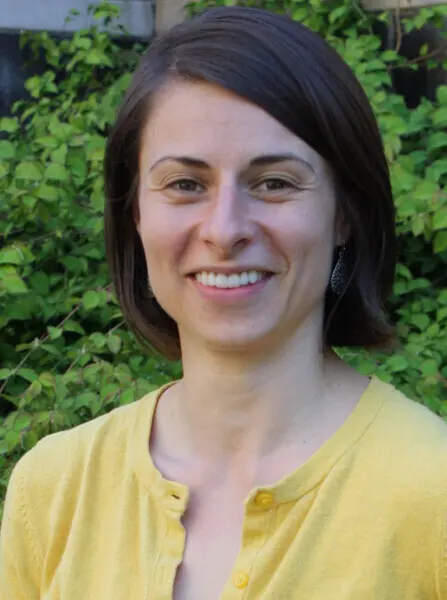Center Staff
University of Colorado Boulder

Caitlin Farrell, Project Director
Caitlin Farrell is director of the National Center of Research in Policy and Practice (NCRPP). She specializes in research on policy implementation and K–12 educational reform, with a particular focus on organizational theory. She uses qualitative methods to explore the links between educational policy and the conditions that foster successful reform, e.g., examining evidence use at the classroom, school, and system levels and the implementation and effects of alternate governance structures, such as charter schools and charter management organizations. Prior to joining NCRPP, she served as a postdoctoral fellow at the University of California, Berkeley, where she studied research-practice partnerships between school districts and research organizations. Earlier, she was an elementary school teacher in the New York and Washington, DC public school systems. She holds a bachelor of arts from Dartmouth College, a master of science in teaching from Pace University, and a doctor of philosophy in urban education policy from the University of Southern California.

Bill Penuel
William R. Penuel is professor of Educational Psychology and Learning Sciences in the School of Education at the University of Colorado Boulder. His research sits at the intersection of learning sciences and policy. He studies the design, implementation, efficacy, and sustainability of efforts to improve science and mathematics education. He has explored how participatory design, professional development, curriculum, and teachers’ collegial interactions support improvement efforts. Recent projects have examined the efficacy of project-based curricula in science, how teachers’ assistance to colleagues can augment the effects of professional development, and how research-practice partnerships facilitate use of research among district leaders. He is co-principal investigator of the Research+Practice Collaboratory, which is developing and testing new approaches for relating research and practice more productively.
He is editor of two recent volumes on educational research methodologies (Learning Research as a Human Science, 2010, with Kevin O’Connor; Design-Based Implementation Research, 2013, with Barry Fishman, Anna-Ruth Allen, and Britte Haugan Cheng) and numerous journal articles and book chapters.

Alison Fox Resnick
is a research associate for NCRPP at the University of Colorado Boulder. Her work aims to understand - and design for - how educational organizations and partnerships can enact systems and practices that support the full complexity of necessary learning for equity-oriented transformation. A central focus of her work is mathematics teacher learning and the design and implementation of research approaches, systems, roles, and tools to support transformation of educational practice. She works in partnership with both district and state leaders to co-design research-informed approaches to designing and implementing educator learning systems for mathematics instructional change and recently co-authored a book with practitioner partners titled Learning Together: Organizing Schools for Teacher and Leader Learning. She lives in Ann Arbor, MI.

Terrenda White
Terrenda White is an Associate Professor of Sociology and Education at the University of Colorado-Boulder. Her current research focuses on market-based education reforms in urban communities, and its cultural and pedagogical impact on teacher dispositions, teacher professional autonomy and identity, and the development of inclusive classroom practices. White also emphasizes the varied responses of teachers to market-based education restructuring, highlighting dilemmas that current policies pose for teacher autonomy and the development of critical and culturally responsive practices with historically marginalized and under-served students.
Current Collaborators
- Paula Arce-Trigatti, National Network of Research Practice Partnerships
- Kim Wight, National Network of Research Practice Partnerships
- Sarah Duran, Fruition Initiatives
Past Staff and Collaborators
- Jim Soland, University of Virginia
- Corinne Singleton
- Robbin Riedy
- Sarah Wellberg, Center for Advanced Study of Teaching and Learning at the University of Virginia
- Kristina Stamatis, University of Nebraska Omaha
- Erin Henrick, Partner to Improve
- Danny Schmidt, Partner to Improve
- Stacey Sexton, SageFox
- Derek Briggs, University of Colorado Boulder
- Heather Hill, Harvard Graduate School of Education
- Cynthia Coburn, School of Education and Social Policy at Northwestern University
- Jim Spillane, School of Education and Social Policy at Northwestern University
- Anna-Ruth Allen, University of Colorado Boulder
- Kristen Davidson, University of Colorado Boulder